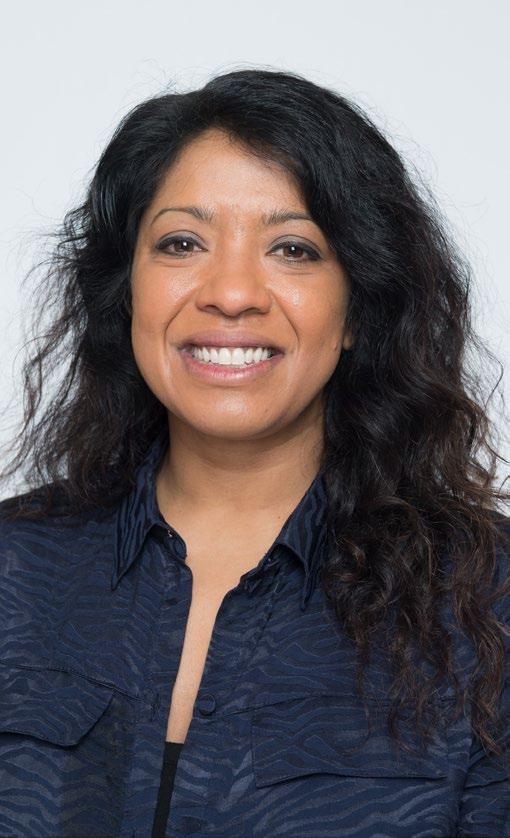
3 minute read
Sigi Joseph: Opinion
from GP Frontline: Autumn 2020
by RCGP
Dr Sigi Joseph is RCGP Scotland Executive Officer for Professional Development. Here she reflects on being a BAME doctor during COVID-19...
Itrust I am not alone when I say that in early 2020 watching the emerging data on COVID-19 sweeping across the nations, I held my breath. The words “brace brace”, usually reserved for in-flight safety briefings seemed more important than ever.
Staring down the barrel of an inevitable pandemic and the likely repercussions was certainly a new experience in my 20 year career.
Reflecting seven months on, I feel a huge sense of pride for my practice team who swiftly shifted the way we consult; responding calmly with dignity and safety at the forefront of our minds. The impressive guidance instigated by our LMC and the huge amount of policy work undertaken at RCGP Scotland, led by our indomitable Chair, Dr Carey Lunan has certainly helped to support practice teams across Scotland to navigate the pandemic. There is some trepidation as we look forward as the pent up pre-COVID workload reappears and a degree of emotional fatigue as the COVID-19 finish line moves further into the horizon.
Primary care has shone as a beacon of good practice with flexibility and a positive attitude. Contrary to some reports in the press, general practice has very much remained open throughout COVID-19, many of us working additionally in COVID-19 clinics and continuing to train our GPSTs and support our staff and families at home.
Remaining calm in a crisis has always been my approach and I think as clinicians most of us are intrinsically like this. However, as a BAME clinician I would be lying if I didn’t admit to an added level of worry.
In the early pandemic days, I was devouring every bit of news, social media and research I could find on COVID-19. The apparently disproportionate number of Black Asian and minority ethnic colleagues dying heightening this further, not least because I come from a family of five BAME NHS doctors. This emerging worldwide data alongside the findings of Public Health England’s report by Professor Kevin Fenton make this a poignant time to reflect on the impact of COVID-19 on our BAME colleagues. Considering areas such as risk stratification for minority groups, position and value within the workforce and deeper difficult issues such as systemic racism.
The simultaneous worldwide Black Lives Matter protests alongside the COVID-19 related BAME issue coming to the fore gives us no better time to think about our BAME colleagues and what we are doing at RCGP to support and celebrate the diversity in our workforce. I was delighted to see the production of the RCGP BAME action plan and in particular some of its recommendations, for example, increasing diversity in leadership positions and examiners, championing Faculty Education Leads, tailored risk assessment for safe working environments and CPD. In Scotland we have the excellent STEP Programme (Scottish Trainee Enhanced Programme) for our International Medical Graduate trainees.
We need to recognise that true inclusivity requires a cultural shift away from tokenism into full and proper inclusion of BAME colleagues, at all levels of the decision-making hierarchy.
Amazing initiatives such as Dr Omon Imohi’s Black Women in Health Initiative and increased recognition by our non BAME colleagues that things have got to change are very heart warming.
For me, strong role modelling has truly helped me to understand what is achievable in a GP career. These people have celebrated my strengths and helped me to push myself in taking additional roles. Such role models do not have to be BAME but they must be truly supportive and encouraging of BAME colleagues at all levels.
The 10th anniversary of the Marmot Review exposes our lack of progress in many areas of tackling health inequalities and I truly hope we will not be looking at a COVID-19 report in ten years’ time and finding nothing has changed for our BAME workforce. With the right policy changes and true recognition of the elephant in the room, this can be avoided.

